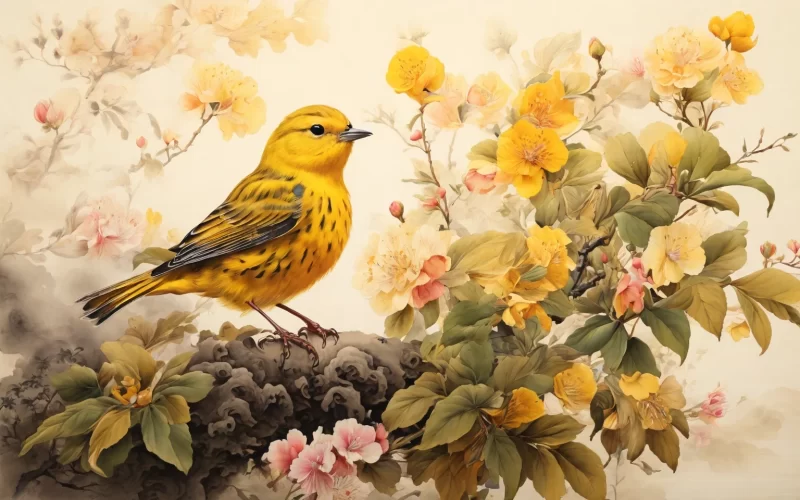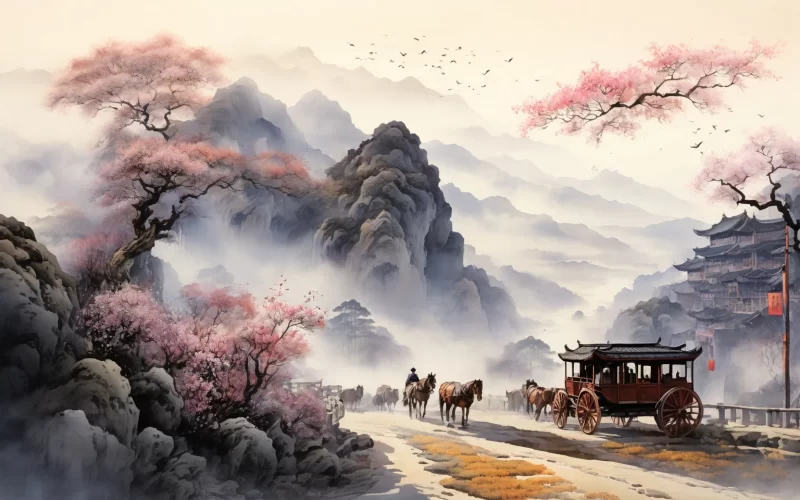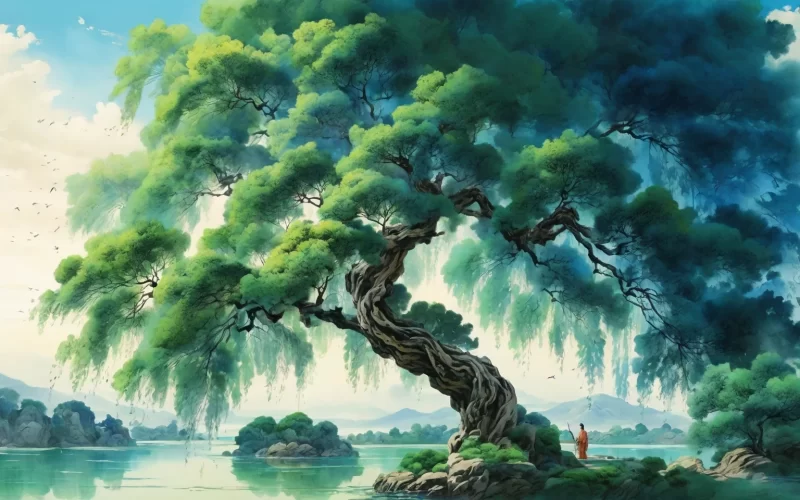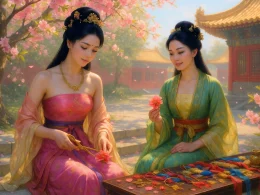Spring is far, far away
Where the sun slants its ray.
If orioles have tear,
Wet highest flowers here!
Original Poem
「天涯」
李商隐
春日在天涯,天涯日又斜。
莺啼如有泪,为湿最高花。
Interpretation
This poem was composed during the Tang Dynasty. Through depicting spring's beauty contrasting with his solitary existence, the poet expresses profound lamentations about time's passage and life's impermanence. Natural imagery conveys inner emotions, reflecting the poet's springtime melancholy and self-pity arising from life's disappointments.
First Couplet: "春日在天涯,天涯日又斜。"
Chūn rì zài tiān yá, tiān yá rì yòu xié.
Spring is far, far away / Where the sun slants its ray.
The poet uses spring as backdrop for his lonely wandering. The vibrant season's beauty starkly contrasts with his desolation, highlighting an exile's isolation and resignation.
Second Couplet: "莺啼如有泪,为湿最高花。"
Yīng tí rú yǒu lèi, wèi shī zuì gāo huā.
If orioles have tear, / Wet highest flowers here!
The poet projects sorrow onto nature, imagining birds weeping for the most vulnerable flowers. This personification reflects his own grief over life's fleeting beauty and inevitable decay.
Holistic Appreciation
The poem intertwines natural imagery with emotional resonance, blending spring melancholy with existential contemplation. The opening "sun tilts at world's edge" paints geographic and emotional exile, while the latter couplet's symbolic birds and blossoms deepen temporal awareness. This fusion of objective imagery and subjective feeling creates layered depth, elevating the work's philosophical intensity.
Artistic Merits
Using minimalist strokes, the poem sketches a solitary figure against "world's edge" and "slanting sun" - natural metaphors for inner desolation. The delicate depiction of "orioles' tearful song" and "highest blossoms" transforms abstract temporality into tangible symbols, manifesting the poet's acute sensitivity to time and destiny.
Insights
This lyrical meditation on spring's transience serves as memento mori, urging appreciation of life's fleeting beauty while confronting impermanence. It advocates finding solace through artistic sublimation when facing adversity, transforming personal sorrow into universal resonance that transcends temporal boundaries.
Poem translator
Xu Yuan-chong (许渊冲)
About the poet
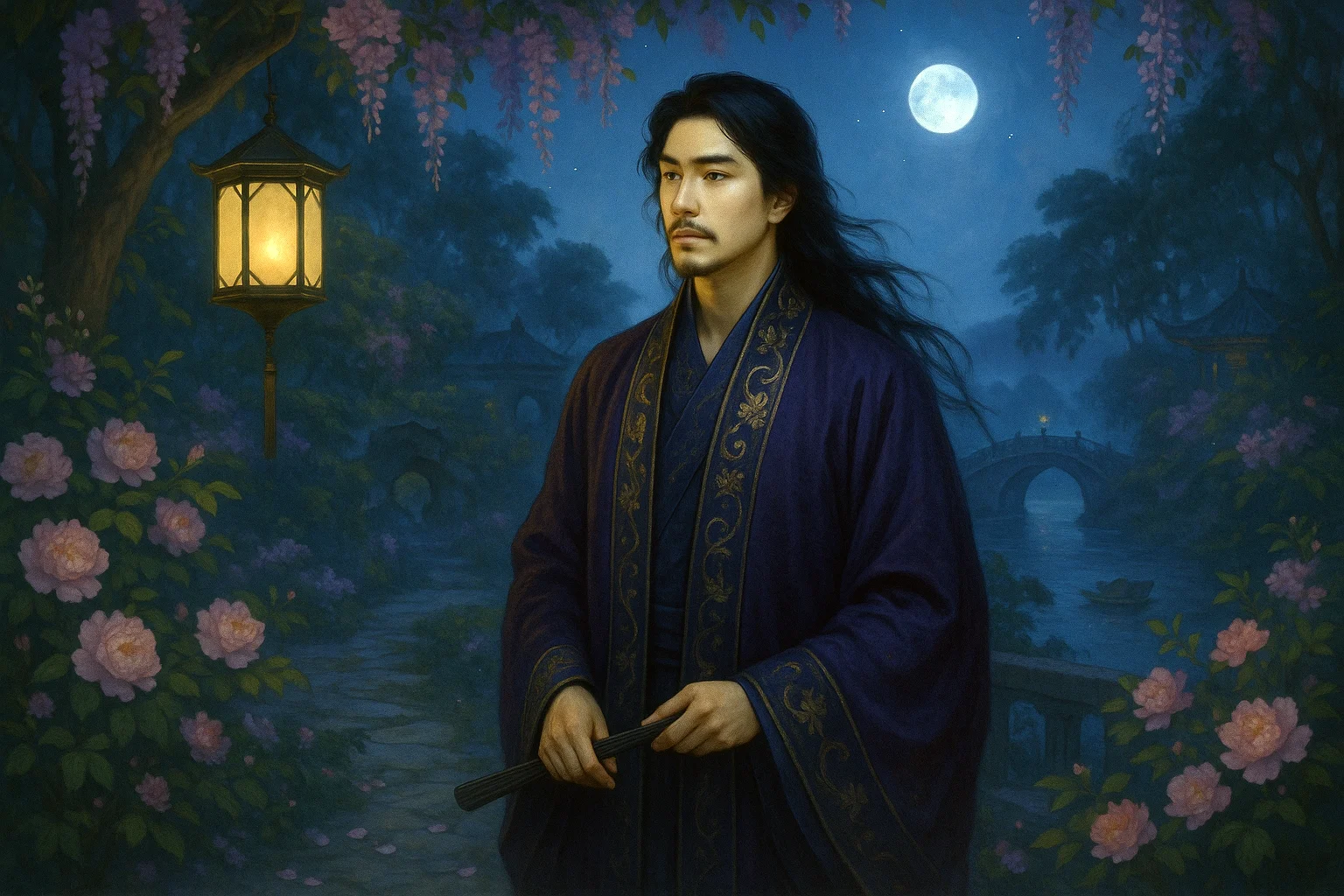
Li Shangyin (李商隐), 813 - 858 AD, was a great poet of the late Tang Dynasty. His poems were on a par with those of Du Mu, and he was known as "Little Li Du". Li Shangyin was a native of Qinyang, Jiaozuo City, Henan Province. When he was a teenager, he lost his father at the age of nine, and was called "Zheshui East and West, half a century of wandering".






